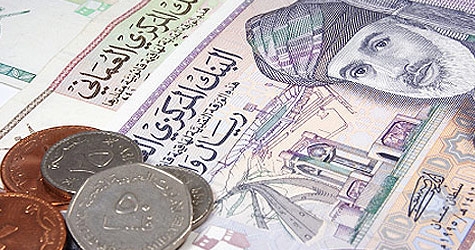The International Monetary Fund (IMF) has predicted that Oman's gross domestic product (GDP) growth will slow to five per cent in 2012 from 5.4 per cent last year. The Fund also anticipates that Oman's economic growth will slow further to 3.9 per cent in 2013.
In its report titled 'Economic prospects and policy challenges for the GCC countries', the Washington-based IMF has predicted Oman's fiscal surplus will be 7.1 per cent of GDP this year, down from 8.1 per cent in 2011. In line with other GCC countries, Oman's fiscal surplus is estimated to decline to 5.8 per cent of GDP in 2013.
The Fund estimates that the combined GDP growth of all the GCC states will be 5.6 per cent in 2012, down from 7.5 per cent in 2011, while the combined fiscal surplus of GCC countries is projected to be 14.6 per cent of the GDP this year.
Presenting the downside risks about oil prices in the period ahead, the Fund suggested that most GCC countries should plan to reduce the growth rate in government expenditure in the period ahead, which would help prevent any prospect of overheating and also improve long-term fiscal positions.
"In terms of fiscal policy, the strong state of the GCC economies means that the pace of government spending growth can be scaled down from recent highs. While expansionary fiscal policies helped the region weather the global financial crisis, given the healthy economic expansion currently underway, the need for continued fiscal stimulus is diminishing," the report said.
The report said that GCC's high dependence on hydrocarbon export revenues makes the region vulnerable to a sharp drop in oil prices and global energy demand.
"Hydrocarbon export receipts are the dominant source of revenue for all GCC governments, with shares exceeding 80 percent of total receipts. Consequently, a sharp fall in oil prices would imply a substantial worsening of external and fiscal balances and could potentially also have an impact on government spending and economic activity," the report added.
IMF projects that the GCC in aggregate would, under the downside scenario, go into deficit by 2014, and all GCC economies would run fiscal deficits by 2017. "Bahrain and Oman stand out with deficits of 16 per cent of GDP each, but Saudi Arabia is also projected to reach a double digit deficit."
"Risks to the GCC stemming from exposure to Europe are limited, but the impact via oil demand and prices could be substantial. A rapid deterioration in the global economy could bring about developments similar to what the region experienced in 2009, including a sharp fall in oil prices and disruptions to capital flows," the report added.
Muscat Daily
30 October

























































